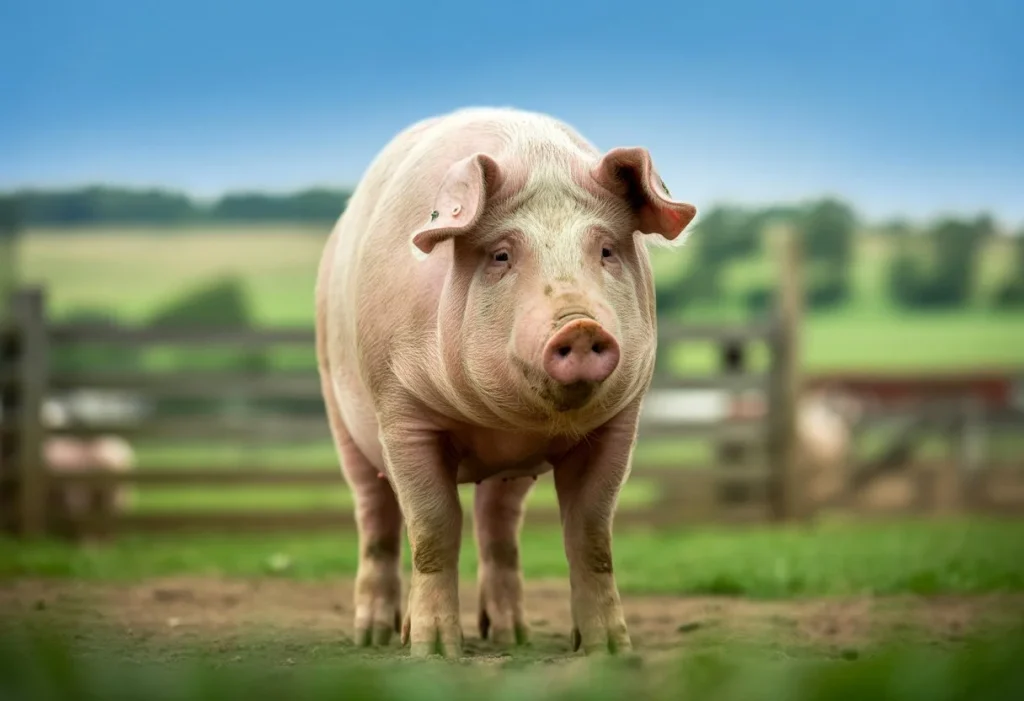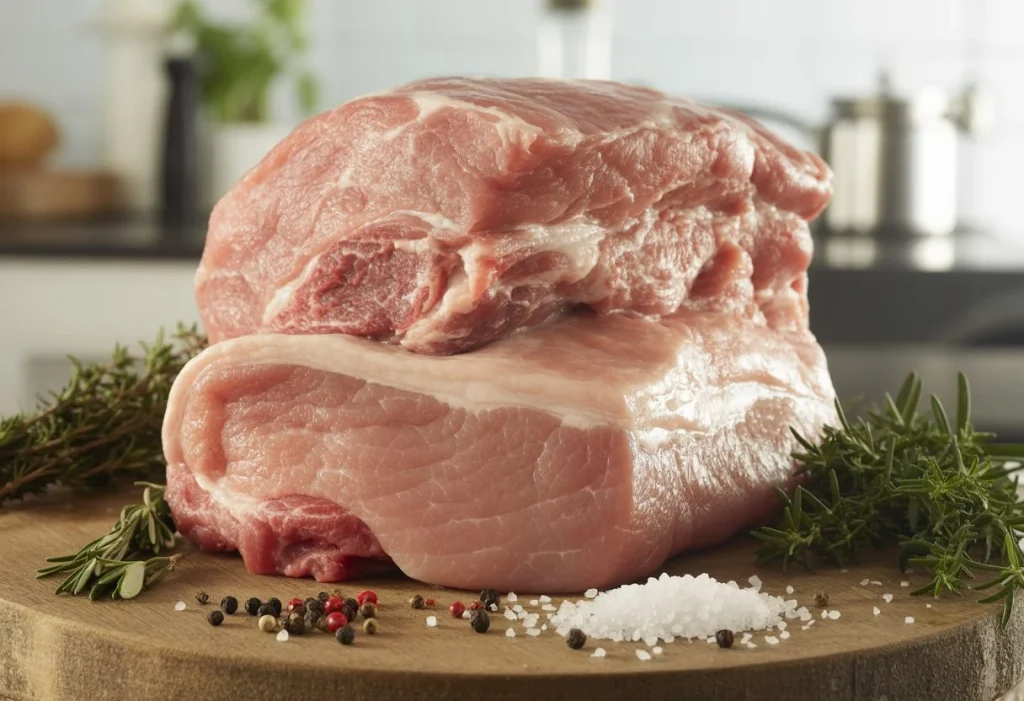Is Pork Halal? Why Do Muslims Not Eat Pork? Islamic Law Explained

Pork is not halal, and Muslims do not eat it because it is explicitly forbidden by Islamic law. This prohibition comes directly from the Quran, which describes pork as impure and commands believers to avoid it. The clear rule is that consuming pork is haram, meaning prohibited, regardless of the circumstances except in extreme cases where life is at risk.
This rule is more than just a matter of health or culture, it is a command from God that Muslims follow as part of their faith and obedience. The reasons behind the prohibition are sometimes linked to spiritual cleanliness and physical well being, but the primary reason remains the divine instruction found in Quranic verses like Quran 2:173 and Quran 6:145.
Muslims respect this rule as part of a broader set of dietary laws that govern what is halal, or lawful, for them to consume. Understanding is pork halal and why pork is forbidden helps explain an important aspect of Islamic practice and belief that shapes daily life and personal discipline.
Islamic Prohibition of Pork
Muslims are required to follow specific dietary rules that clearly forbid the consumption of pork. This prohibition is grounded in Islamic law and is supported by direct commandments found in the Quran and the teachings of the Prophet Muhammad. Understanding these sources helps explain why pork is classified as haram, or forbidden, and how Islamic dietary laws define halal and haram.
Quranic Verses on Pork
The Quran explicitly prohibits eating pork in several verses. One key verse is from Surah Al-Baqarah (2:173), which states:
“He has forbidden you only dead animals, and blood, and the swine, and that which is slaughtered as a sacrifice for other than God.”
This prohibition is repeated in Surah Al-An’am (6:145), where pork is described as impure:
“For that surely is impure.”
These verses emphasize that pork is not just unhealthy or unclean but is divinely forbidden. Muslims believe that God’s commands are not always meant to be debated but followed out of faith, which is why pork remains off limits regardless of personal reasoning.
Role of Hadith in Dietary Laws
Hadith, the sayings and actions of Prophet Muhammad, further clarify the Quranic rules on food. The Prophet consistently taught Muslims to avoid pork as part of broader guidance on what is halal (permitted) and haram (forbidden).
Hadith literature stresses the importance of maintaining spiritual and physical purity. Avoiding pork serves not only as obedience to God’s law but also helps Muslims keep clean habits and stay spiritually disciplined.

Together with the Quran, hadith play a critical role in shaping Islamic dietary practices by providing details on how to interpret and apply God’s commands in daily life.
Halal and Haram Explained
In Islam, halal refers to what is lawful and permitted, while haram means forbidden. Foods like pork are haram because they conflict with divine law as outlined in the Quran and confirmed by hadith.
The classification is strict: even small amounts of pork or pork products are not allowed. This extends to food, medicine, and additives, which must be halalvcertified or verified as free from impurities.
Exceptions exist only in extreme necessity, such as life threatening situations, where forbidden items may be consumed to save a life. This rule highlights the priority of preservation of life above all else in Islamic law.
Muslims adhere closely to these rules as a reflection of faith and submission to God’s wisdom and authority.
Why Do Muslims Not Eat Pork?
Muslims avoid pork because it is strictly prohibited in Islamic dietary laws. This avoidance is based on clear religious commands, health risks tied to pork consumption, and the need to maintain spiritual and ritual purity.
Obedience to God’s Command
The primary reason Muslims do not eat pork is obedience to God’s clear prohibition in the Quran. The Quran repeatedly states that pork is forbidden (haram) for consumption. Verses such as Surah Al-Baqarah 2:173 directly list pork as prohibited, reflecting a divine rule that Muslims must follow without exception.
Muslims believe that following this command is a form of submission to God’s will. Ignoring it is seen as disobedience. The rule applies not only to pork itself but also to all pork products. This command creates a clear boundary in Muslim diet and behavior, emphasizing that halal foods must be chosen carefully.
Health Concerns and Pork Consumption
Pork has long been linked to health risks, which supports the Islamic prohibition. Pigs can carry parasites like Taenia solium, which causes serious diseases including trichinosis and cysticercosis.
Improperly cooked pork may also contain harmful bacteria such as Salmonella or Yersinia. Because pigs eat almost anything, their meat can accumulate toxins. Additionally, pork tends to have high saturated fat content, which may increase the risk of heart disease. These risks make pork less safe compared to halal meats like chicken, lamb, or beef.
Spiritual and Ritual Purity
Beyond physical health, avoiding pork is about maintaining spiritual and ritual purity. Eating halal food is part of preserving cleanliness and obedience in Islam. The consumption of pork is seen as conflicting with this purity. Muslims believe that staying away from pork reinforces their connection to God and helps keep their body and soul clean.

This idea is supported by the Prophet Muhammad’s teachings, which emphasize the importance of cleanliness as an element of faith. During religious observances like Ramadan, Muslims pay extra attention to these rules to strengthen their spiritual discipline. Avoiding pork, therefore, is a visible way Muslims practice self control and uphold their beliefs in daily life.
Pork Derivatives and Hidden Sources
Pork derivatives are often found in many everyday products, not just obvious pork meat. These can include enzymes, fats, and gelatin used to improve texture and flavor. Muslims following Islamic law must identify and avoid these hidden pork products to maintain halal dietary standards.
Pork Derivatives in Food and Medicine
Pork derivatives appear in items like snacks, dairy, baked goods, and even some medicines. For example, gelatin from pork is common in gummy candies, marshmallows, and certain yogurts as a thickener or stabilizer. Enzymes from pig stomachs are used in cheese making and processed cheese products.
Other less obvious sources include lard in baked goods like traditional pie crusts or flour tortillas. Some medications use pork based gelatin capsules or other ingredients derived from pigs. Muslims need to check product labels carefully since these ingredients are often listed under technical terms or E-numbers like E441 for gelatin.
Guidance on Avoiding Pork Products
To avoid pork derivatives, products with halal certification or clear labeling should be chosen. Labels stating “vegetarian,” “plant based,” or “halal certified” are reliable indicators. Muslims should also avoid products containing ingredients like gelatin, lard, porcine enzymes, mono and di-glycerides, or L-cysteine unless they are confirmed as plant based or halal.
If the source of an ingredient is unclear, it is safer to leave the product out of one’s diet. Asking manufacturers about the origin of ingredients can help clarify doubts. Many Muslims rely on these practices to ensure compliance with Islamic law, keeping their diet free from haram pork products in all forms.
For more detailed guidance, comprehensive halal consumer guides explain how pork derivatives hide in everyday food and offer tips for safer shopping habits.
Halal Meat Alternatives and Modern Dietary Practice
Muslims follow specific rules when choosing meat to ensure it is halal. Pork is forbidden, so other meats that meet Islamic dietary laws are preferred. These meats must be prepared according to strict guidelines to ensure they are clean and permissible.

Common Halal Meats: Lamb and Chicken
Lamb and chicken are two of the most commonly consumed halal meats. Both must be slaughtered by a Muslim who follows Islamic rules, including saying a prayer during the process.
Lamb is often favored for its rich flavor and is used in many traditional dishes worldwide. It is considered pure and wholesome when prepared properly.
Chicken is popular due to its availability and versatility. It must come from a healthy bird slaughtered in the halal way to be valid. Many halal certification agencies ensure chicken products meet these standards.
Both meats provide protein and nutrients without violating the prohibition on pork. Halal certification labels help Muslims easily identify these meat products in stores.
Navigating Halal Food Choices Today
In modern times, Muslims rely on halal certification systems to avoid non permissible foods. These certifications guarantee products are free from pork and other haram substances.
Halal food options have expanded in supermarkets and restaurants, making it easier to maintain dietary laws even outside Muslim-majority countries.
Muslims often look for labels that confirm:
- The type of meat (e.g., lamb, chicken)
- Certified halal processing
- Absence of pork derivatives or alcohol
Restaurants and food producers increasingly offer halal menus, reflecting demand. This helps Muslims maintain their dietary standards while enjoying diverse cuisines. For those in non Muslim areas, many apps and guides assist in finding halal food outlets, supporting adherence to Islamic dietary laws every day.
Conclusion
The Islamic prohibition on pork is clear and strict, but questions arise about specific situations and the reasoning behind it. This section explains rulings on survival, spiritual purity, exceptions, health concerns, comparisons with other faiths, and the scriptural basis for the ban.
